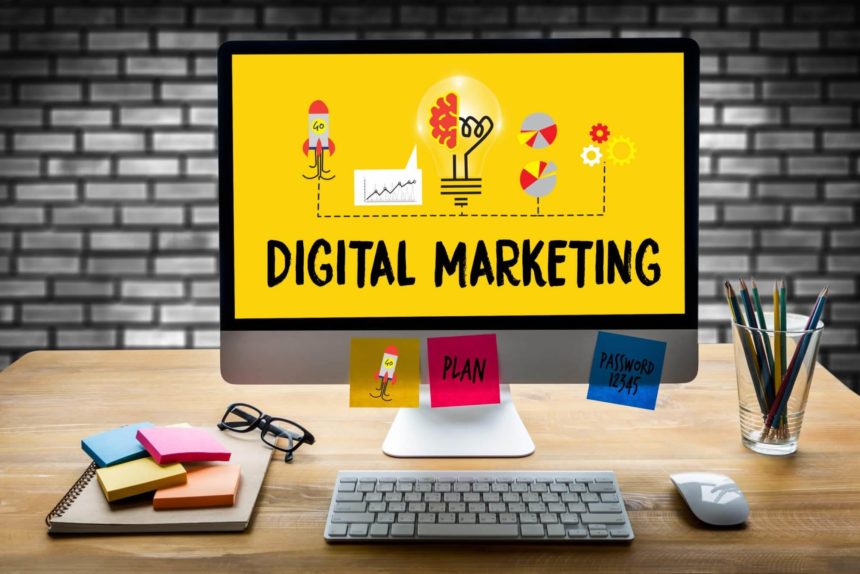In today’s fast-paced, interconnected world, digital marketing has become an essential component of any successful business strategy. As consumers increasingly turn to the internet and digital platforms for information, communication, and commerce, businesses must adapt their marketing efforts to reach and engage their target audiences effectively. In this article, we will explore the purpose, role, and benefits of digital marketing in modern businesses.
I. Purpose of Digital Marketing
- Brand Awareness: Digital marketing helps businesses increase their online visibility, reach a wider audience, and build brand recognition in a competitive marketplace.
- Customer Engagement: Digital marketing enables businesses to interact with their target audience in real-time, fostering relationships, gathering feedback, and nurturing loyalty.
- Lead Generation: Digital marketing strategies, such as content marketing, search engine optimization (SEO), and social media advertising, can help businesses attract and convert leads, driving sales and revenue growth.
- Data-Driven Decision Making: Digital marketing provides businesses with valuable insights into consumer behavior, preferences, and trends, enabling them to make informed decisions and optimize their marketing strategies.
- Competitive Advantage: Embracing digital marketing can give businesses a competitive edge, allowing them to stay ahead of the curve and adapt to changing market conditions and consumer expectations.
II. Role of Digital Marketing in Business
- Multi-Channel Approach: Digital marketing encompasses various channels, such as social media, email, mobile, and content marketing, allowing businesses to create a cohesive and integrated marketing strategy.
- Targeted and Personalized Marketing: Digital marketing platforms enable businesses to reach specific audience segments, delivering personalized and relevant content that resonates with their target market.
- Real-Time Analytics and Insights: Digital marketing provides businesses with access to real-time analytics, enabling them to measure the effectiveness of their campaigns, adjust strategies, and optimize performance.
- Customer-Centric Approach: Digital marketing focuses on the needs, preferences, and behaviors of the customer, fostering a customer-centric approach that drives engagement, loyalty, and long-term value.
- Innovation and Creativity: Digital marketing encourages businesses to experiment with new formats, channels, and strategies, fostering innovation and creativity in their marketing efforts.
III. Benefits of Digital Marketing for Businesses
- Increased Reach and Visibility: Digital marketing enables businesses to reach a global audience, expanding their customer base and increasing brand awareness.
- Enhanced Customer Experience: Digital marketing allows businesses to deliver personalized, omnichannel experiences that meet the needs and expectations of their customers, fostering loyalty and long-term value.
- Improved Return on Investment (ROI): Digital marketing strategies, such as SEO, content marketing, and social media advertising, offer cost-effective alternatives to traditional marketing channels, delivering a higher ROI for businesses.
- Measurable Results: Digital marketing provides businesses with clear and actionable metrics, allowing them to measure the success of their campaigns and make data-driven decisions.
- Adaptability and Agility: Digital marketing enables businesses to quickly adapt their strategies in response to changing market conditions, consumer preferences, and industry trends.
IV. Digital Marketing Strategies
- Search Engine Optimization (SEO): Optimizing your website and content for search engines can help businesses improve their organic search rankings, attract traffic, and generate leads.
- Content Marketing: Creating and sharing valuable and relevant content can help businesses establish thought leadership, build brand awareness, and engage their target audience.
- Social Media Marketing: Leveraging social media platforms to promote products, engage with customers, and share content can help businesses reach a wider audience and foster loyalty.
- Email Marketing: Sending targeted and personalized emails can help businesses nurture leads, promote products, and drive sales.
- Mobile Marketing: Optimizing your marketing efforts for mobile devices can help businesses reach a growing audience of mobile users and deliver a seamless user experience.
V. The Evolving Landscape:
Digital marketing is a dynamic field constantly evolving with new technologies and trends. Staying informed and adapting your strategies is crucial for long-term success. Here are some key considerations:
- Emerging technologies: Artificial intelligence, virtual reality, and the metaverse are shaping the future of customer interaction.
- Data privacy regulations: Understanding and complying with data privacy regulations like GDPR and CCPA is essential.
- Evolving user behavior: Continuously adapt your approach to meet the changing needs and preferences of your target audience.
Conclusion
Digital marketing has become an indispensable component of modern business strategy, enabling businesses to reach, engage, and convert their target audience in a rapidly evolving digital landscape. By embracing digital marketing, businesses can harness the power of data, technology, and creativity to drive growth, foster innovation, and create lasting value for their customers and stakeholders. By staying informed about the latest trends, best practices, and strategies, businesses can stay ahead of the competition and thrive in the digital age.










